Can Emergency Rooms Check for Oral Cancer? What You Need to Know
Oral cancer is a serious condition, and its early detection can significantly improve treatment outcomes. While most people are familiar with regular dental checkups for oral health, they may wonder if emergency rooms (ERs) can check for oral cancer. Understanding the role of ERs in diagnosing oral cancer, as well as recognizing the signs and symptoms, can help you make informed decisions about when to seek care. This article explores how emergency rooms handle oral health concerns, including oral cancer detection, and when it’s time to visit the ER for these issues.
Can Emergency Rooms Diagnose Oral Cancer?
Emergency rooms are equipped to handle a wide range of medical emergencies, but diagnosing oral cancer is not typically one of their primary functions. Emergency room physicians are trained to address immediate medical needs, such as trauma, infections, and severe pain. However, diagnosing oral cancer usually requires a more specialized approach that goes beyond what an ER is typically designed to handle.
In the case of a suspected oral cancer emergency, the ER may perform a basic examination and take initial steps to address any urgent concerns. This may include assessing the severity of symptoms, such as swelling, bleeding, or pain. However, a definitive diagnosis of oral cancer typically requires additional tests, including biopsies, imaging scans, and consultations with specialists like oral surgeons or oncologists.
What Symptoms May Lead You to the ER?
While oral cancer is not something that can be quickly diagnosed in an emergency room, certain symptoms may warrant an ER visit. If you experience any of the following symptoms, it’s important to seek medical care immediately:
- Severe Pain or Swelling: Persistent pain or significant swelling in the mouth, tongue, or throat that doesn't improve with over-the-counter pain relievers could be a sign of an underlying issue, including oral cancer.
- Unexplained Bleeding: If you notice unexplained bleeding in your mouth or throat that doesn’t stop, this could indicate a problem that needs urgent attention.
- Difficulty Swallowing or Breathing: A sudden difficulty swallowing or breathing, along with a sensation of something lodged in your throat, may be a serious symptom that requires immediate medical intervention.
- Growths or Lumps: If you notice any lumps or growths in the mouth, neck, or throat that are painful or don’t go away over time, it’s essential to get checked out.
- Changes in Speech or Voice: A hoarse voice or difficulty speaking may signal a problem in the throat or mouth that warrants investigation.
What Happens When You Go to the ER with Oral Cancer Symptoms?
If you visit an emergency room with symptoms that might suggest oral cancer, the doctor will typically begin by evaluating your condition and performing a physical examination. This may include:
- Visual Inspection: The doctor will examine your mouth, tongue, and throat for any visible signs of abnormalities, such as growths, sores, or ulcers.
- Palpation: The doctor may gently feel the areas around your mouth, neck, and jaw to detect any lumps or swollen lymph nodes that could indicate cancer.
- Pain Management: If you are in significant pain, the ER doctor will provide pain relief and address any urgent symptoms to stabilize you before further examination.
While the emergency room can handle these immediate steps, further tests are needed for a definitive diagnosis of oral cancer. If the doctor suspects cancer, they will likely refer you to a specialist, such as an oral surgeon or an oncologist, for a more thorough evaluation.
When Should You Seek Oral Cancer Screening?
While the ER is equipped to manage urgent symptoms, regular oral cancer screenings are typically performed by dental professionals, not emergency room physicians. The American Cancer Society recommends that adults undergo routine screenings for oral cancer, especially those who are at higher risk due to factors like smoking, heavy alcohol use, or a history of HPV infections.
If you have any of the risk factors or symptoms associated with oral cancer, it’s essential to schedule regular checkups with your dentist or oral health specialist. During these visits, your dentist will look for early signs of oral cancer, including unusual growths, sores, or changes in the soft tissues of your mouth.
What to Expect After an ER Visit for Oral Cancer Symptoms
If you’ve gone to the ER for symptoms that may be related to oral cancer, and the doctor suspects that further investigation is needed, they may refer you to a specialist for additional tests. These tests may include:
- Biopsy: A biopsy is a procedure in which a small sample of tissue is taken from a growth or lesion in the mouth to be examined for cancerous cells.
- Imaging Tests: Imaging tests, such as X-rays, CT scans, or MRIs, may be used to determine the extent of any growths or tumors and to assess whether the cancer has spread to other areas.
- Consultation with an Oncologist: If oral cancer is suspected, an oncologist will be consulted to discuss treatment options, which may include surgery, radiation therapy, or chemotherapy.
It’s important to follow up with the specialist recommended by your ER doctor. Early detection and treatment of oral cancer are critical to improving outcomes, so prompt care and follow-up are essential if cancer is suspected.
Can Emergency Rooms Prevent Oral Cancer?
Emergency rooms are primarily focused on treating immediate, urgent conditions. They do not play a role in preventing oral cancer. Preventive measures for oral cancer typically involve maintaining good oral hygiene, avoiding tobacco products, limiting alcohol consumption, and getting the HPV vaccine. Regular dental checkups are the most effective way to catch early signs of oral cancer before symptoms worsen.
Ultimately, while ERs can address urgent symptoms that may arise due to oral cancer, prevention and early detection are best achieved through proactive dental care and regular screenings by qualified professionals. If you have concerns about oral cancer, make sure to schedule a visit with your dentist or an oral health specialist who can provide comprehensive care and screening.

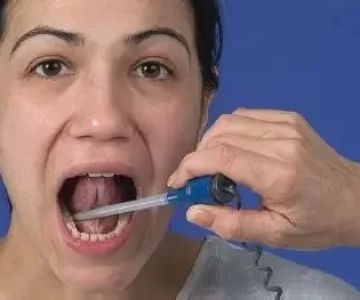
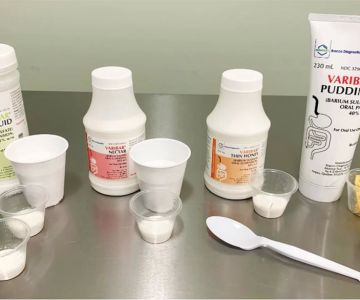
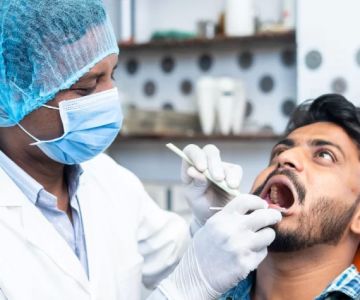

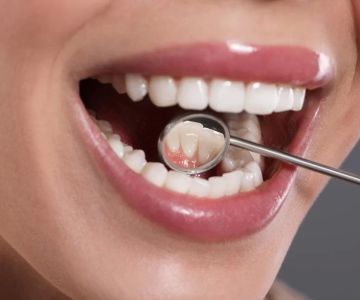
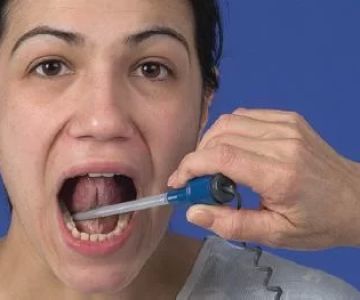
 Growing Smiles of Voorhees4.0 (2464 review)
Growing Smiles of Voorhees4.0 (2464 review) Affordable Dentures & Implants4.0 (855 review)
Affordable Dentures & Implants4.0 (855 review) Coventry Family Dental4.0 (247 review)
Coventry Family Dental4.0 (247 review) Hiser Orthodontics5.0 (283 review)
Hiser Orthodontics5.0 (283 review) Sapphire Family Dental (Dr. Amy Chi, Dr. Emily Allen & Dr. Steven Rzepecki)4.0 (208 review)
Sapphire Family Dental (Dr. Amy Chi, Dr. Emily Allen & Dr. Steven Rzepecki)4.0 (208 review) New York Total Dental5.0 (85 review)
New York Total Dental5.0 (85 review) The Importance of Oral Health Education During Pregnancy for a Healthy Pregnancy
The Importance of Oral Health Education During Pregnancy for a Healthy Pregnancy Best Tips for Brushing Your Teeth Properly for Healthy Gums: Essential Techniques for Oral Health
Best Tips for Brushing Your Teeth Properly for Healthy Gums: Essential Techniques for Oral Health Why Skipping Dental Checkups Can Lead to Bigger Oral Health Problems
Why Skipping Dental Checkups Can Lead to Bigger Oral Health Problems Advantages of Porcelain Dental Restorations
Advantages of Porcelain Dental Restorations How Can Diabetes Cause Tooth and Gum Problems? Preventing and Managing Oral Health Issues
How Can Diabetes Cause Tooth and Gum Problems? Preventing and Managing Oral Health Issues Healthy Habits for Promoting Good Oral Health and Hygiene: Tips for a Healthy Smile
Healthy Habits for Promoting Good Oral Health and Hygiene: Tips for a Healthy Smile